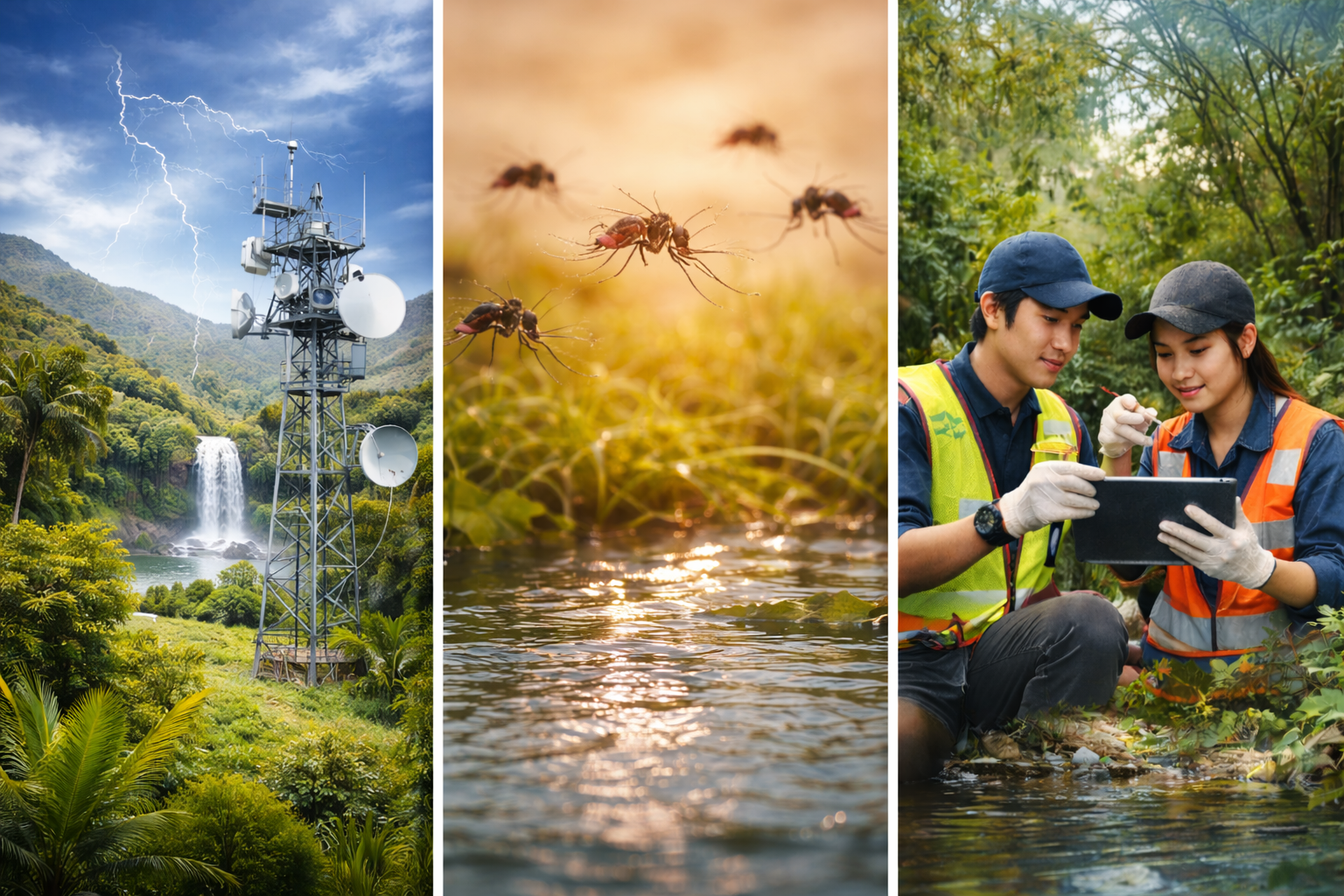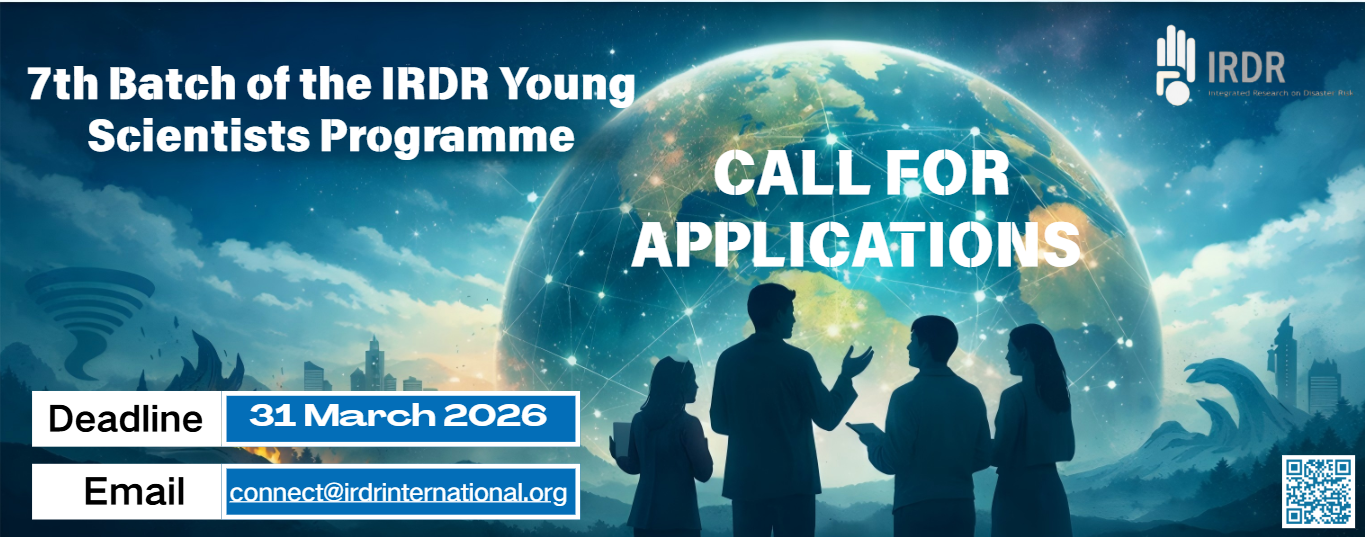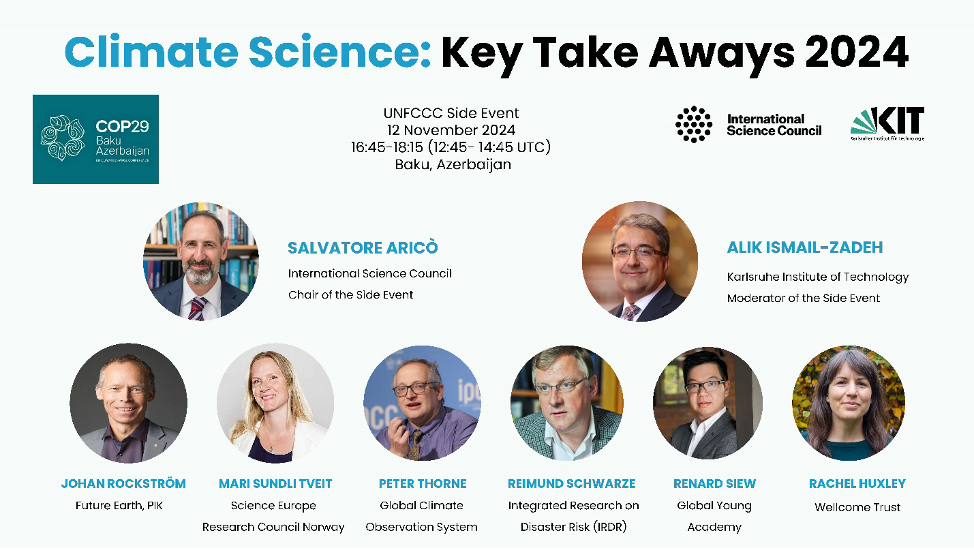
The COP29 Side Event “Climate Science: Key Take Aways 2024” organised by the International Science Council (ISC) and the Karlsruhe Institute of Technology (KIT) on 12 November was related to the discussion of the frontiers in climate science. The Side Event presented the latest developments in climate science as well as in disaster science and highlighted a pivotal role of science in supporting countries and the world community in reaching the goals of the international climate policy and in advancing the sustainable development. The meeting was opened by Salvatore Aricò, ISC Chief Executive Office, who welcomed the participants and introduced the moderator of the meeting Alik Ismail-Zadeh of KIT & IRDR as well as the invited speaker Johan Rockström of the Potsdam Institute for Climate Impact Research (PIK). Johan Rockström presented the report “10 New Insights from Climate Science” (https://10insightsclimate.science/), which synthesized the most critical advances in climate change research from the past 18 months. The report was produced by a global team of natural and social scientists representing Future Earth, The Earth League, and the World Climate Research Programme. The talk was followed by a panel discussion with participation of Rachel Huxley (Wellcome Trust), Reimund Schwarze (German Committee for Disaster Risk Reduction, an IRDR National Member), Renard Siew (Global Young Academy), Peter Thorne (Global Climate Observing System), and Mari Sundli Tveit (Science Europe & Research Council of Norway). The discussion was moderated by Alik Ismail-Zadeh.
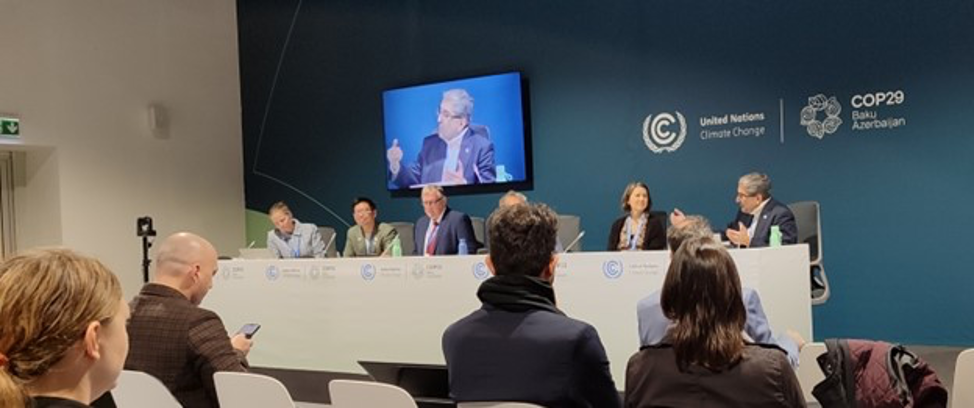
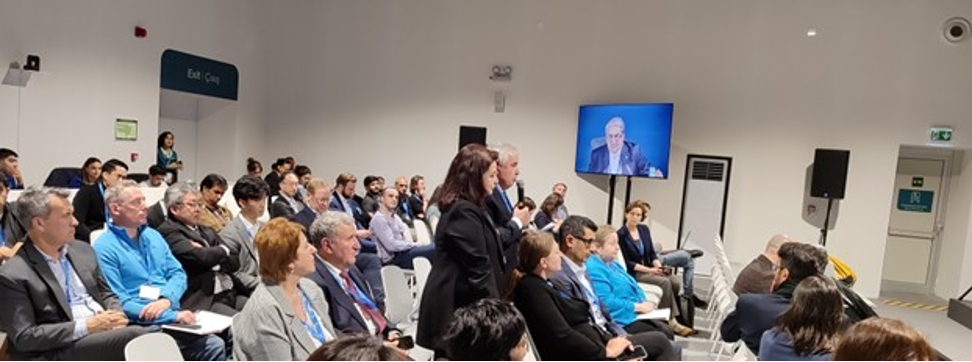
The panellists discussed new fundings in research on climate change; highlighted the importance of science for a more effective and urgent response to climate change as well as for the analysis of financing climate change; and emphasised the role of effective co-designed and co-produced integrated research and global collaborations to impact in the science-policy-society space. The panel discussed also key challenges and gaps in climate science that we need to focus on during years ahead to effectively respond to climate change; among the challenges the panellists mentioned observational gaps, density of observations, data sharing, forensic investigations, adaptation policy, and disaster risks issues. The last part of the discussion was opened for the audience for questions and comments. The moderator summarized key points of the meeting, and Salvatore Aricò made final remarks on behalf of ISC. The meeting was well attended by the representatives of the Parties and observers from the organizations accredited in UNFCCC.
Alik Ismail-Zadeh, Chair, IRDR Scientific Committee
28 November 2024
(Photos: ANAS & ISC)
